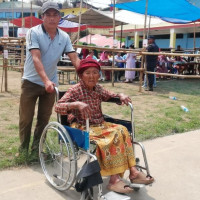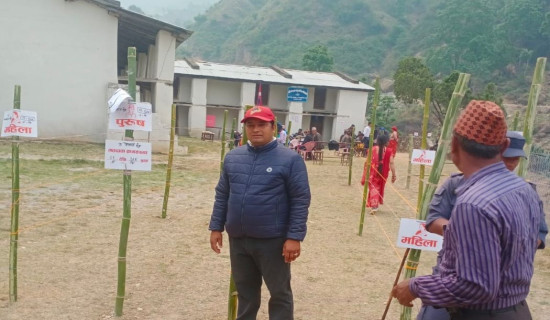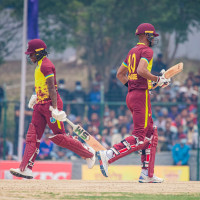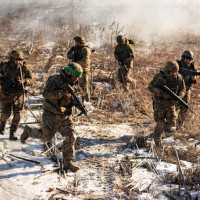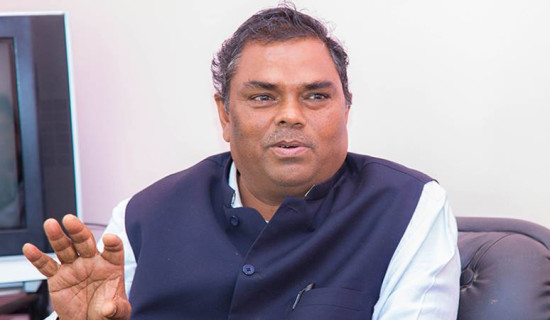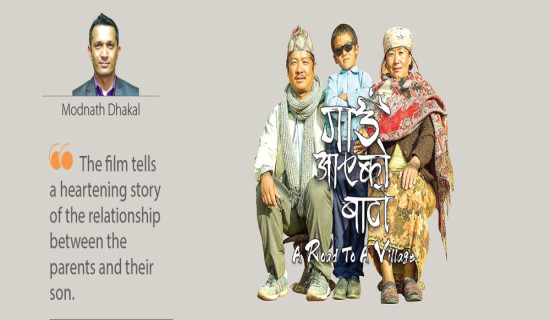- Sunday, 28 April 2024
Boao Forum deliberates on economic costs of climate change and conflict
Boao, China, Mar. 29: Leaders of the Asian countries have called for a rule-based international order, seamless trade among the nations across the globe, and immediate and meaningful actions to tackle the impact of climate change.
Speaking at the inaugural ceremony of the annual conference of the Boao Forum for Asia (BFA) 2024 being held in Boao city of Hainan Province of China, they said that since the future belongs to Asia, they must act together to achieve the ‘shared prosperity’.
Ban Ki Moon, Chairman of BFA, highlighted the climate crisis and said that transitioning away from fossil fuel and increasing energy efficiency should be the areas of immediate address. “We just have the hottest year since 1850. It demands some meaningful actions,” he said.
The Asian leaders also said that two core goals of the United Nations - peace and development - are relevant for the countries in Asia. Moon, who is also former Secretary General of the UN, said that to materialise the aspirations of peace and development, there should be solidarity, cooperation and multilateralism among the nations in the region.
Expressing concerns over about 15 per cent increment in the global trade risks caused by the conflict in the Middle East and Ukraine, he said. “Global crisis has put us in the same boat. We need to fulfill our share of responsibilities.”
The BFA 2024 that started from Tuesday, Mar. 26 is following four-themed modules of World Economy, Scientific and Technological Innovation, Social Development and International Cooperation, with dozens of topics under them.
More than 2,000 delegates from about 60 countries have gathered in Boao, a coastal city which China plans to turn into an economic and manufacturing centre and maritime hub.
From Nepal, Prime Minister of Nepal, Pushpa Kamal Dahal Prachanda’s Foreign Affairs Advisor Dr. Rupak Sapkota, Former Deputy Prime Minister and Vice-chair of CPN-UML, Bishnu Prasad Paudel, and Vice-Chairman of the Lumbini Development Trust, Dr. Lharkyal Lama, are attending the Forum.
Economy main focus
The conference is discussing the issues like boosting investors’ confidence, improving the investment ecosystem, enhancing foreign investment attractiveness, advancing financial cooperation in Asia, and strengthening industrial and supply chain cooperation within the region.
Likewise, artificial Intelligence (AI) and its governance, cooperation in the advancement of new energy vehicles and possible future steps, high-quality development through Belt and Road Initiative (BRI) cooperation with a focus on ‘Digital Silk Road’ are also being deliberated upon.
The Forum also has a spotlight on the areas of global trade, geopolitical outlook and security initiatives for peace, as well as political hurdles in the climate crisis and ways to overcome them in order to accelerate climate action.
Zhao Leji, Chairman of the Standing Committee of the People National Congress of China, also stressed on the need to tackle the risk and challenges created by conflict and climate change.
“World economic recovery is affected by conflict and war. We advocate multipolar world and equal share of economic globalisation so that every country could benefit from the economic activities,” he said.
Asia is the most dynamic region globally with a share of 70 per cent in the global growth. Meanwhile, Zhao said that the BRI could be an effective tool for economic globalisation.
Prime Minister of Sri Lanka, Dinesh Gunawardena, urged for the end of ongoing trade wars and stressed on an environment for shared prosperity.
Similarly, former PM of Cambodia Hun Sen, President of Nauru, David Ranibok Adeang and PM of Dominica, Roosevelt Skerrit and other leaders also addressed the opening programme of the Forum.
The BFA 2024 with the theme ‘Asia and the World: Common Challenges, Shared Responsibilities’ will run until Friday.
BFA and Nepal
Nepal was represented by King Birendra Shah at the first conference of the BFA held in Boao on February 26-27, 2001. It was his last international visit.
Then, President Bidya Devi Bhandari had addressed the BFA 2022 through a video link and made a special appeal to the world community to come up with the generous packages for the economic recovery of developing countries like Nepal.
She also highlighted the adverse impacts of climate change on economy not least of mountainous and island countries and urged every country to implement its commitments to reduce carbon emissions to prevent global warming, according to a statement issued by the Ministry of Foreign Affairs (MoFA) of Nepal following Bhandari’s address to the Forum.
Former President Dr. Ram Baran Yadav attended the Forum in 2015. Prime Minister Pushpa Kamal Dahal ‘Prachanda’, former Prime Minister KP Sharma Oli and former King Gyanendra Shah had also participated in the annual conference of the Forum.
What is BFA?
BFA was created in February 27, 2001 as a forum to discuss the Asian perspectives for economic development and other relevant topics in the emerging global contexts, as an alternative of the World Economic Forum.
It aimed at bringing the Asian nations together and promoting greater economic integration in the region.
“BFA shall provide a high-level venue for dialogue between leaders from government, private enterprise, academia and other juridical associations to discuss, exchange and develop ideas in the scope of economic, social, environmental and related issues,” read the BFA Charter.
Then Filipino President Fidel V. Ramos, Australian Prime Minister Bob Hawke and Japanese PM Morihiro Hosokawa proposed to create an Asian forum in 1998 that would be similar to the World Economic Forum. As Asian countries welcomed the concept, China provided the support and cooperation for the establishment of the forum.
The BFA conference has been convened annually except in 2020 due to COVID-19 pandemic.
Nepal is one of the founding members of the BFA along with Australia, Bangladesh, Brunei Dar es Salaam, Cambodia, China, India, Indonesia, Japan, Iran, Kazakhstan, Kyrgyz Republic, Lao PDR, Malaysia, Mongolia, Myanmar, Pakistan, Philippines, South Korea, Singapore, Sri Lanka, Tajikistan, Thailand, Turkmenistan, Uzbekistan, and Vietnam.
Later in 2006, Israel and New Zealand, and in 2016, the Maldives were added into the BFA initial countries’ list of Forum.


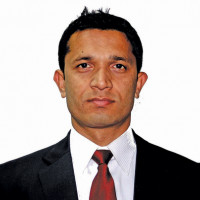
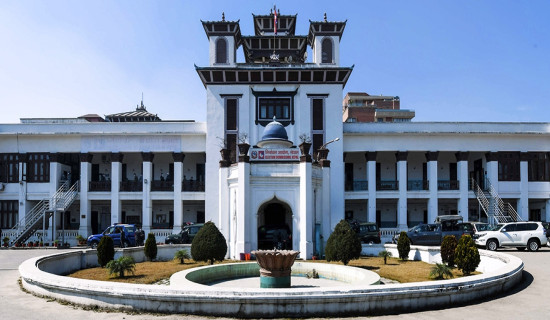
-square-thumb.jpg)
